|
.What are our plans for Autumn and Winter 2019?Well more courses of course 🙂Here is a list of all the courses until 2020. Some of them are almost full, so hurry and apply now!
10. – 12. 10. 2019 –> Developing Emotional Intelligence In a world of AI we need more EI. Learn to teach your students about awareness of their emotions and support them in their ability to empathise with others. 10. – 19. 10. 2019 –> Multiculturalism – Teacher’s role in the integration process of immigrant children Who is up for fostering diversity and multiculturalism in kindergartens and primary schools? This course will teach you how to implement activities with different stakeholders in the process of integration of immigrant children. 10. – 26. 10. 2019 –> ICT in my classroom: Enhancing students’ learning, collaboration, motivation, and creativity across the curriculum Edmondo, Google docs, Padlet, Wikis, WeVideo, Snapchat, Instagram, Facebook, Youtube, … The students already use half of them. So why shouldn’t you use them at your advantage? By the end of the course, you’ll be the coolest teacher at your school. –> Science for primary school children: When complicated becomes fun and easily understandable Sometimes it’s hard for younger students to imagine all the abstract ideas we try to present to them. Make learning science attractive again. At this course you will learn to make your presentations fun and simple. And most important, you will learn to make your lessons easier for your students to understand. 11. – 16. 11. 2019 –> Preventing early school leaving Does you school have problem with drop out? Than this is a course for you. Join the course and the only drop will be in your drop out rates. –> Teaching character: Positive psychology for every teacher This course shows how can inspiring teachers integrate teaching character strengths, optimism, positive emotions, resilience, and positive relationships into their own teaching. You will learn how to use positive psychology tools to improve students’ engagement, accomplishments, grit, and persistence. –> Peer coaching as a sustainable source of professional development Learn to ask powerful questions. By using this tool, you can help your colleagues and students to GROW. 11. – 23. 11. 2019 –> Developing effective communication skills The course is based on Transactional analysis, a theory of communication and personal growth. Participants will recognise their own communication patterns, develop feedback giving techniques and learn to recognise psychological games. –> What provokes conflict and how can we manage it? By getting to know the Relationships Awareness Theory, the participants will develop core skills to build effective relationships and learn to avoid unnecessary conflict. 11. – 29. 11. 2019 –> Career development survival kit: Enhance employability and improve career prospects ofteachers and students In this rapidly changing world it’s hard to find some stability. By attending this course, teachers will be empowered to support their children and students to develop their own career competences and find their own stability. 12. – 06. 12. 2019 –> Teaching entrepreneurship in schools: Experiential approach 5 € challenge, lean start-up, design thinking, prototyping, business modelling and planning.. all this and more are the key learning concepts of the course. Learning by doing is the best way to become an successful entrepreneur – and an entrepreneur teacher. –> Teaching Creativity in schools Attend this course to learn new creativity teaching methods in order to improve school curricula and provoke more “out of the box” thinking by the students. 12. – 14. 12. 2019 –> Non-formal participative teaching methods Over the course of this 7-day training, we will learn and practice the participatory learning methodologies that include World Café, Open Space Technology, Appreciative inquiry, Circle Practice and others. Did we get your attention but you have more questions before you make the pre-registration? That’s great! Please write us an email to info@skupinaprimera.si We’ll be happy to help you get the perfect Erasmus+ experience. With love, Primera Group Are you planing your mobility? Here is a list of our sessions open until the end of 2019. We’re sure you can find something for you.
Click on the one that suits you, and find out more. AUGUST 2019 08. – 10. 08. 2019 Edward de Bono creativity teaching in schools Preventing early school leaving 08. – 24. 08. 2019 Science for primary school children: When complicated becomes fun and easily understandable Multiculturalism – Teacher’s role in the integration process of immigrant children OCTOBER 2019 10. – 12. 10. 2019 Developing Emotional Intelligence 10. – 19. 10. 2019 Multiculturalism – Teacher’s role in the integration process of immigrant children Yes, i can: Special needs students and inclusive education 10. – 26. 10. 2019 ICT in my classroom: Enhancing students’ learning, collaboration, motivation, and creativity across the curriculum Science for primary school children: When complicated becomes fun and easily understandable NOVEMBER 2019 11. – 16. 11. 2019 Preventing early school leaving Teaching character: Positive psychology for every teacher Authentic Authority: Building Autonomy and Responsibility in a Classroom Rediscover preschool: the foundation of good education Peer coaching as a sustainable source of professional development 11. – 23. 11. 2019 Developing effective communication skills What provokes conflict and how can we manage it? 11. – 29. 11. 2019 Career development survival kit: Enhance employability and improve career prospects ofteachers and students DECEMBER 2019 12. – 06. 12. 2019 Teaching entrepreneurship in schools: Experiential approach Teaching Creativity in schools 12. – 14. 12. 2019 Non-formal participative teaching methods Are you looking for an interesting way to spend your August?
Here is your chance. In August we have these CONFIRMED courses 04. 08. – 10. 08. 2019 –> Teaching Creativity in Schools Learn new creativity teaching methods in order to improve school curricula and provoke more “out of the box” thinking by the students. –> Preventing Early School Leaving Does you school have problem with drop out? Than this is a course for you. Join the course and the only drop will be in your drop out rates. 18. 08. – 24. 08. 2019 –> Multiculturalism – Teacher’s role in the integration process of immigrant children Who is up for fostering diversity and multiculturalism in kindergartens and primary schools? This course will teach you how to implement activities with different stakeholders in the process of integration of immigrant children. –>Science for primary school children: When complicated becomes fun and easily understandable Make learning science attractive again. It’s that simple. –> Peer Coaching as a Sustainable Source of Professional Development Learn to ask powerful questions. By using this tool, you can help your colleagues and students to GROW. Did we get your attention but you have more questions before you make the pre-registration? That’s great! Please write us an email to info@skupinaprimera.si We’ll be happy to help you get the perfect Erasmus+ experience. With love, Primera Group Teachhub posted an article about professional development skills of a modern teacher in 21st century. Professional development can be increased by improving any of the required skills of an individual. Read on to find out which course is appropriate for the improvement of a specific skill.
#1 Adaptability Adapting lesson to each student can be very demanding. Especially when number of students with special needs is increasing. Teachers need to adapt to this trend by creating inclusive school environment, understanding students with special needs and planning inclusive lessons. Did you know autistic students often find tasks requiring a lot of planning and organisation too difficult to manage? It is recommended to allow them to take photos of complicated instructions using their mobile phone or tablet. Course: Yes, I can: Special needs students and inclusive education #2 Confidence Sometimes it’s hard to be confident and believe in yourself. Having confidence in your students or colleagues can be even more demanding. It’s easier once you know your character strengths and strong points of others to focus on them. By taking free survey (http://www.viacharacter.org/www/Character-Strengths-Survey) you will find out which are your character strengths and how to use them. Course: Teaching character: Positive psychology for every teacher #3 Communication Communication skills are important when working with students, parents and colleagues, since they can as well improve your conflict resolution skills. Substantial understanding of psychological dynamics can benefit your communication and relationship with others. Once you realise people are often communicating from different ego states instead of reacting to the present moment, it’s easier to avoid conflicts. Course: Developing effective communication skills #4 Team player Teachers encounter team work daily. This can be very beneficial, since team members help each other find solution in difficult situations. To make this process efficient, it’s advisable to use coaching skills and tools. When colleagues are facing problems, people tend to advise them instead of posing questions. On the other hand, researches show advises are less beneficial when solving problems than questions. By posing questions we encourage colleagues to think and find a solution that’s the best for them, instead of imposing ours. Course: Peer coaching as a sustainable source of professional development #5 Continuous learner As a teacher you know learning is a lifelong process. All our courses are about encourage learning new techniques, skills, sharing ideas and examples of good practice. Courses by topic. #6 Imaginative Thinking of new ideas for your lessons can be easier when using tools that enhance creativity. You can boost your student’s imagination by using DeBono’s thinking tools, such as PMI (plus, minus, interesting). After you gather different ideas, evaluate them individually by considering their pluses, minuses and interesting points. After that it will be easier for you to decide which idea is the best one. Course: Teaching Creativity in Schools, inspired by De Bono Source: Cox, J. (2019). 15 Professional Development Skills for Modern Teachers. Teachhub. Retrieved from https://www.teachhub.com/15-professional-development-skills… With love, Primera Group Want to join these happy teachers?
Now is your chance. Here is a list of CONFIRMED courses for first half of 2019: 31. 03. – 06. 04. 2019 –> Peer coaching as a sustainable source of professional development Powerful questions? GROW model? Join this course and learn to professionally lead a coaching session in the context of peer coaching. 12. 05. – 18. 05. 2019 –> Teaching creativity in schools, inspired by deBono Join this course and learn to provoke more “out of the box” thinking by the students and to foster problem-solving capabilities by educational personnel. 19. 05. – 25. 05. 2019 –> Developing Effective communication skills and What Provokes Conflict And How Can We Manage it? Join this course and get first and knowledge on the basics of Transactional analysis and Self Awareness Theory. Learn to manage your relationships better. 04. 08. – 10. 08. 2019 –> Preventing Early School Leaving Does you school have problem with drop out? Than this is a course for you. Join the course and the only drop will be in your drop out rates. 18. 08. – 14. 08. 2019 –> Multiculturalism – Teacher’s role in the integration process of immigrant children Who is up for fostering diversity and multiculturalism in kindergartens and primary schools? This course will teach you how to implement activities with different stakeholders in the process of integration of immigrant children. –>Science for primary school children: When complicated becomes fun and easily understandable Make learning science attractive again. It’s that simple. Did we get your attention but you have more questions before you make the pre-registration? That’s great! Please write us an email to info@skupinaprimera.si We’ll be happy to help you get the perfect Erasmus+ experience. With love, Primera Group Join our confirmed course session:
31. 03. – 06. 04. 2019 or pre-register for any of the other open sessions we have: 18. 08. – 24. 08. 2019 10. 11. – 16. 11. 2019 15. 03. – 21. 03. 2020 18. 10. – 24. 10. 2020 You can directly apply here. It is almost the last part of the application form but it does not mean it is less important. Far from it. The evaluation demonstrates to what extent the objectives and desired outcomes were achieved at the different stages of your Erasmus+ mobility project’s lifecycle. Here is a guideline on how to prepare effective evaluation of your project.
#1 Assessment plan. Systematically done evaluation can actually simplify the development of the project, completion of the application form and reporting. But you need an effective plan to simplify it. In the assessment plan define and prioritise the project objectives. It is impossible to evaluate everything. Select the areas you want to focus on. Define who will manage the evaluation of your project impact and dissemination. It is good to have a responsible person who will monitor project implementation. It might be project coordinator or some other team member. State what you’re assessing and set concrete indicators such as examples below. In the next step choose an appropriate assessment method and tool for collecting and analysing data. After data collection analyse the results and ask yourself the right questions, e.g. what does it mean if the participants established contacts but no new partnership occurred out of the network. Act consequently, e.g. following this analysis we will organise a brainstorming session on developing new project idea and after encourage participants to write their new contacts and propose project idea to them. Additionally, you will have to present intermediary reports and final report of the project to your national agency. Having good assessment plan will help you to write efficient reports. #2 Critical events to evaluate. In order to ensure holistic evaluation mind different levels of evaluation, short-term and long-term impact, and all stages of the project. Levels of evaluation refers to relevant people who benefits from the project: students, teachers, school, teacher training provider and other stakeholders depends on your project objectives. In some cases, you might include parents, local community or administrative staff. Usually applicants define short-term impact indicators such as number of training hours or number of satisfaction with the in-service training. But remember long-term impact and how will you measure and show it. Plan evaluation activities for instance 3 or 6 months after the mobility. Assess what participants of the mobility actually use in their everyday practice. Since high quality training providers assess the effectiveness of their courses as a follow-up activity after a certain period upon the course ending, you can ask them to share information with you. Plan also to evaluate different stages of the project and not just the mobility itself. Holistic evaluation covers assessment of the project management, preparation of the participants, mobility period, dissemination, and effects of the mobility after the mobility is concluded. #3 Examples of the indicators. Ideas for indicators below are adopted from the MICE-T project (www.mice-t.net). Evidence of impact on students:
Evidence of impact on teachers:
Evidence of impact on school:
#4 Tools for evaluation. Data collection methods and tools depends on the impact you want to show. Suggestions below serve as an inspiration for your project:
Unknown friends
Hungarian’s experience of Erasmus+ training courses in Slovenia Although I planned to read something about the place where I was going, because of the chaotic events in weeks before the trip, I did not have the time to do so. To be honest, I knew virtually nothing about this little country, when I left for Ljubljana on a cold October morning. I sat on a train and started looking out of the window. I was looking at the swirling landscape and listening to the people who took on and off the seats. As time went by, landscapes changes and so do people. View started with the plains changing into the slopes and the hilly landscape of Zala, then the mountains appeared in the horizon. Finally, on the shore of the Sava, at the bottom of the steep slopes, we were leaning towards our goal. The audience changed along with the landscape, and I was in a kind of pleasant ignorance in the sounds of familiar and unfamiliar languages (Slovenian, Italian, German, Hungarian etc.). Due to the constantly changing scenarios, I had crossed the borders of countries and landscapes almost without noticing. Erasmus+ course on Conflict Management. It was raining, and it was very dark when I came to Ljubljana. There was hardly any traffic on the streets, the city was surrounded with silence and tranquillity, perhaps due to the hopeless weather. As I have been trying to find my way to hotel, I found out that I do not feel the usual “I am abroad” excitement at all. Instead, I had this powerful friendly feeling, which remained with me all the time during my stay in Slovenia. It felt like home. The country at the juncture of the Mediterranean, Central Europe and the Balkans, loves to combine the effects of the three directions and forms a mixture of things that are both familiar and unknown at the same time. Except for culinary specimens, the compulsory glass of water, the lasagne served with sour cream, and the “kremšnita” offered as a Slovenian specialty, you can feel the German influence, which is a minimum twin to our Franciscan, which give you some familiar feeling. Tasting famous “kremšnita” at Lake Bled. “Cultural crossroads, common history. This is how it is with nations.” we might say. But does not this also work with all of us? During the time spent together, do not we take over from each other, like thoughts, words, gestures and even intonation? Is it enrichment or adaptation? After all, isn’t it both? Six days, seven nights, fifteen people. For them/to us, this October courses in Ljubljana was about learning to understand each other better, to meet another person and to make acquaintance in unknown person. Author: Arbanász Ildikó Original text: http://aporpalyazat.wixsite.com/welcome/single-post/2017/10/28/Itt-a-v%C3%A9ge March was one busy month here at Erasmus+ courses. We successfully conducted 7 different trainings, included more than 70 participants that came from more than 14 different European countries.
In the beginning of the month a group of our participants had the opportunity to train with our Janja Rebolj on raising awareness into dynamics of relationships and interpersonal conflicts that contribute to their personal development during the course Preventing Early School Leaving. Later on we had people joining the Preventing Child Violence and Abuse course where participants learned the techniques to empower children to be safe, strong and free. It is a course on educating the children to understand what NO means, educating them about their rights and how to achieve all that trough interactive workshops that make it easy and fun for kids to understand. During the course Teaching Entrepreneurship in Schools: Experiential Approach participants mostly played with Legos (smile). We know, It sure looks like it from the picture. But actually presented in the picture is prototyping. An essential part of the entrepreneurship process. The participants got teaching guidelines for teaching core entrepreneurial competencies, including business modeling, design thinking and business planning. The final week of March was dedicated to courses on Developing Effective Communication Skills where participants were educated on basics of Transactional Analysis and how to use it in communicating with their students, all trough lots of role playing and dynamic games. At the same time there was a course Teaching Creativity in Schools, inspired by deBono, where participants got the toolbox needed to teach students how to develop their thinking and creativity. Don’t be fooled into thinking that Eramus+ courses in Ljubljana is all about studying. We had some beautiful trips in the afternoons around Slovenia. Getting to know the most beautiful sights and realizing they have to come back for more. Thank you everyone for all the special time we spent together! Early school leaving is a multi-faceted and complex problem caused by a cumulative process of disengagement. Usually it is a result of personal, social, economic, educational or family-related reasons. During the course we were discovering how can we tackle this problem. Our energetic and experienced trainers Janja, Ksenja and Zala engaged participants to find ideas and suggestions how to address this issue. In this course we had 20 wonderful participants from Portugal, Greece, France, Romania and Latvia.
It is very important to help pupils find out the meaning and try to increase their motivation for education by relevant stimuli in safe and significant relationship. Janja taught us a lot about Relationship Awareness Theory also with the help of The Strength Deployment Inventory (SDI). This was very good opportunity for us to learn about our own motivational value systems, behaviour and conflicts. Dear reader – how do you usually act in life? And how do you react in stressful situation? Do you usually try to help others and make their life easier? Or do you strive for immediate reaction, compete for authority and want to win, accomplish? Maybe you are more cautious and you prefer to think before reaction? Or maybe most of the time you try to be flexible? SDI help us identify our personal strengths and weaknesses relating to others under two conditions: when everything is going well, and when we are faced with conflict. Indeed, we have found out that our behaviour and communication style can change when we come into conflict. Raising awareness about dynamics of relationships and interpersonal conflicts can contribute to better and more efficient work with pupils in schools and improve our and their personal development. “Dropping out” in school is usually linked to the feeling of being powerless, senselessness and to the extreme lack of motivation. Therefore, it is very important that we know how to engage pupils. With Janja we were discovering different facilitation tools for students’ engagement: World Cafe, Open Space, The Circle Practice. Ksenja has introduced us Robert Reasoner’s preventive programme of self-esteem in schools and stressed five protection factors for authentic self-esteem and preventing school leaving: security, identity, belonging, purpose, and competence. We were also practising different pedagogical activities to prevent early school leaving. Last part of the course was devoted to Information Communications Technology- ICT. Information technology plays more and more important role in today’s modern society. Zala showed how can we use technology as a tool for connecting with students in order to prevent them to leave the school. We practice how to integrate ICT and new technologies into teaching and education – we found out our possibilities, different tools and also challenges for getting ahead. And yes, now we are masters of making live Facebook videos. On Wednesday the course was enriched with study visit of the Institute of the Republic of Slovenia for Vocational Education and Training. Then our guest Sladjana Šućur Popović prepared presentation of the self-esteem programme, which she uses with pupils in her practice. Of course we didn’t forget about more relaxed and fun parts of the mobility experience. On Monday we had delicious welcome dinner and after dinner it was time for singing and dancing. Participants showed us some typical or interesting dances from their country, and we found out that we all are excellent dancers. We have to admit that this week we really did not have much luck with the weather. Any way we were discovering Ljubljana together, we went to Ljubljana castle, City Museum of Ljubljana and to Bled. We have admired the view of lake Bled, which this time was really amazing- decorated in brightness, so that we were forced to use our imagination. Together we have spent countless pleasant and enjoyable moments. We are very grateful and we are sending a big thank you to all our wonderful participants for their active participation, excellent atmosphere they have created and new friendships. Thank you, you are amazing! The best way to sum up is with the words of our amazing participants: »Participating in the course “Preventing Early School Leaving” was a great experience for me and my colleagues. We met interesting people from other countries and we were trained by experienced, joyful and helpful trainers. From the very first moment we felt very comfortable and people of Primera did a great job, organizing everything and fulfilling our needs. We had some really experiential workshops and we had some good ideas, about methods and techniques for the improvement of relationships in our school & fighting Early school leaving. Even during winter, Ljubljana is a wonderful city, full of life worth a visit. And last but not least, we had the most beautiful project assistant!!!« »This week of training has been very interesting and useful for me. I have learnt a lot about me and my relationships with others, and I will put all of it in practice avec my students. Thanks a lot Janja, Zala and Ksenja to share their experiences with all of us. They are fantastic. Apart from the course, all this week was very well organised, we didn’t have to worry about anything. I would like to repeat this experience. Thank you very much.« »Content of the course: as a development and helping tool for an unqualified teacher, I think the course was great. Even for people with no knowledge about psychology but eager to help their students and enhance their lessons the course was the right choice and pointing to the right direction.« |
primeraWe empower teachers so they can do their job best. Categories
All
LINKSPrimera's practical handbook for writing high quality Erasmus+ mobility projects.
Pan-European Conference on Digital Education Facebook Community. Primera's FB page. Work with us on Erasmus+ KA2 projects: STEP Institute. |
Erasmus+ by Primera for teachersErasmus+ courses by Primera are dedicated to teachers who value evidence-based and practice-driven training in highly interactive international atmosphere.
OID Ljubljana: E10091479 OID Vienna: E10298896 E: info@skupinaprimera.si T: +386 1 320 28 43 Privacy Policy |
Navigation |
Stay tuned! |
© 2020 Skupina Primera Ltd. All rights reserved.


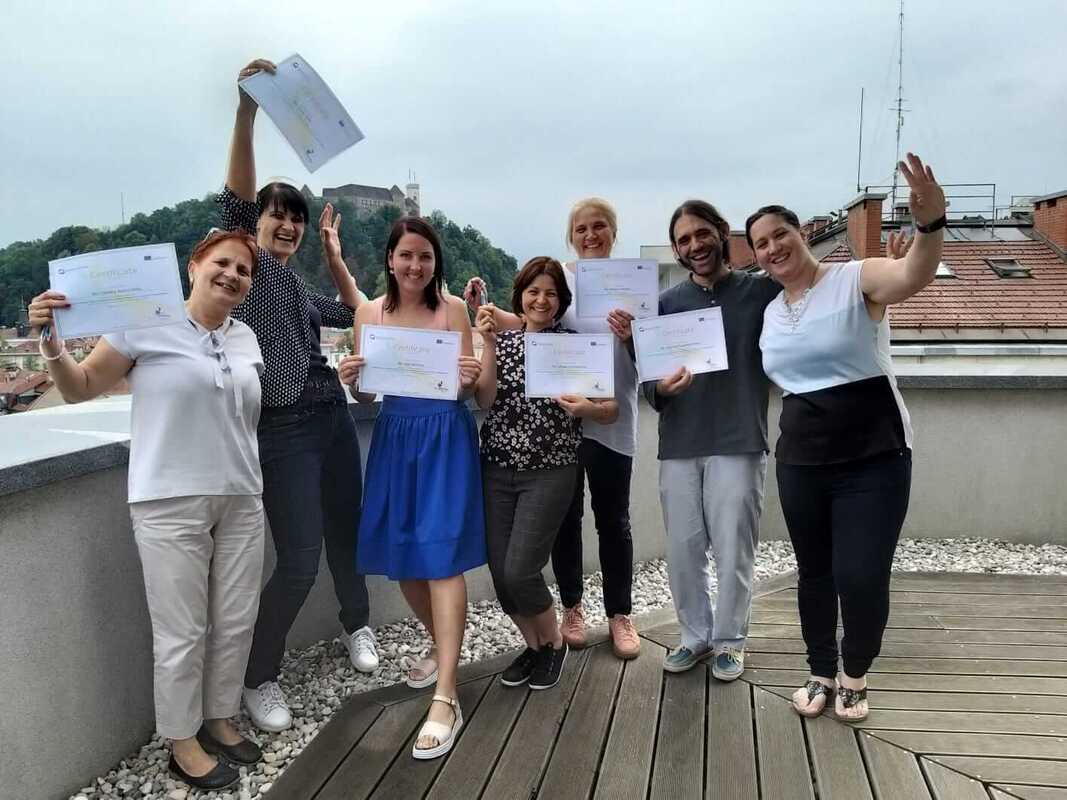
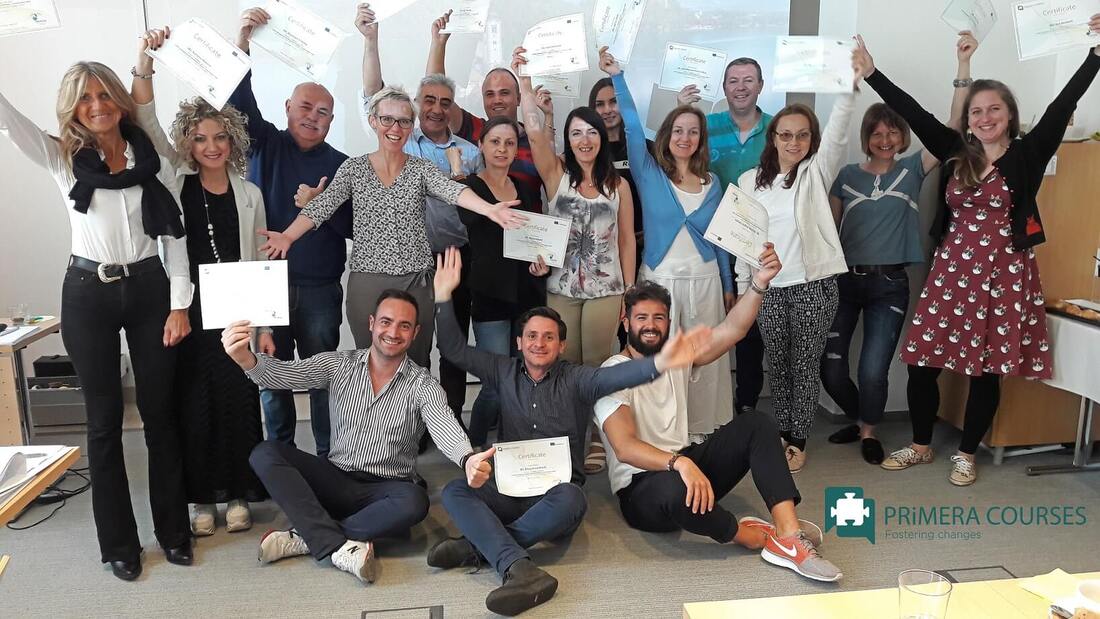
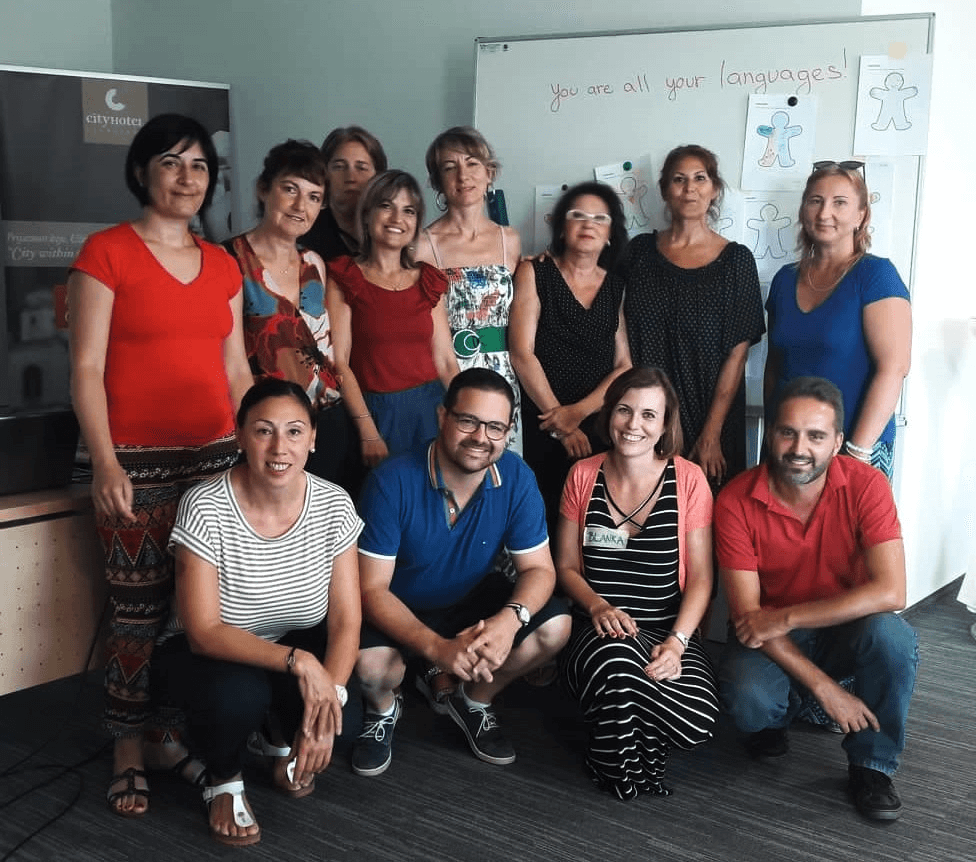

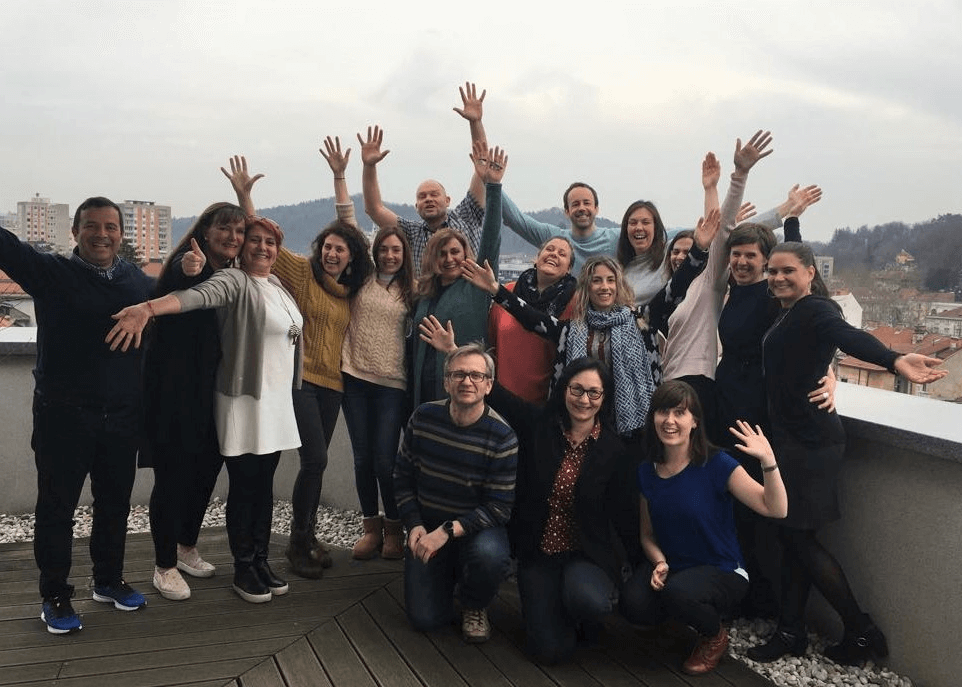
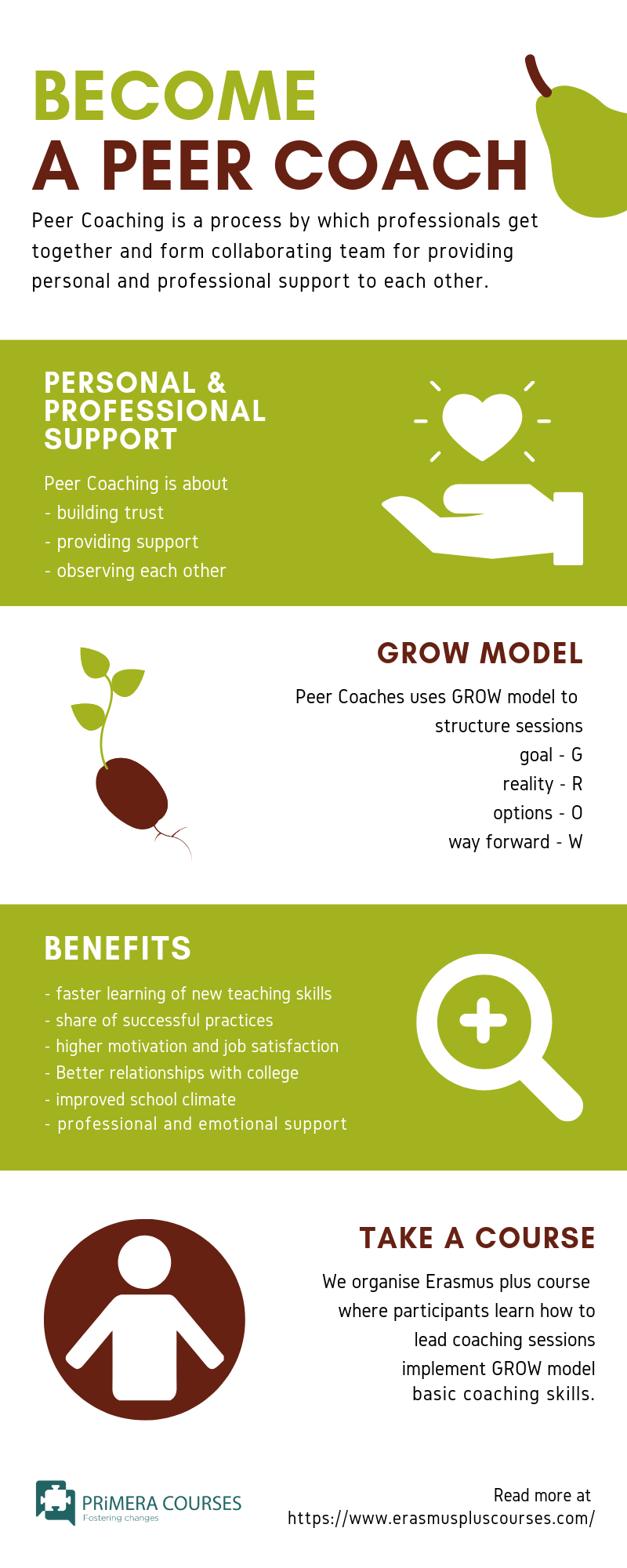

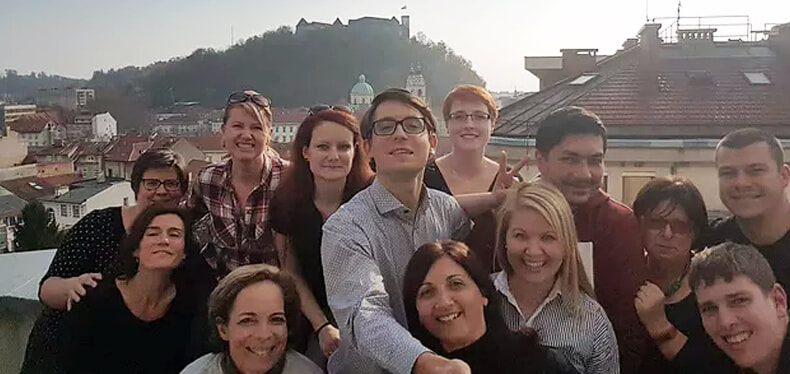
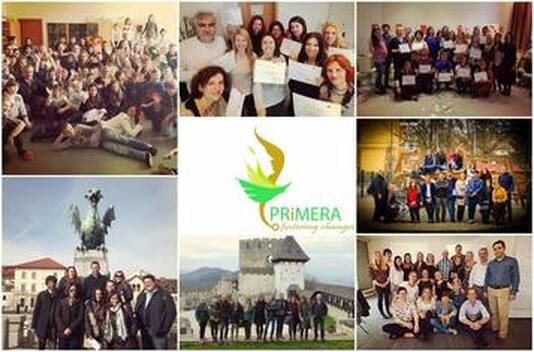
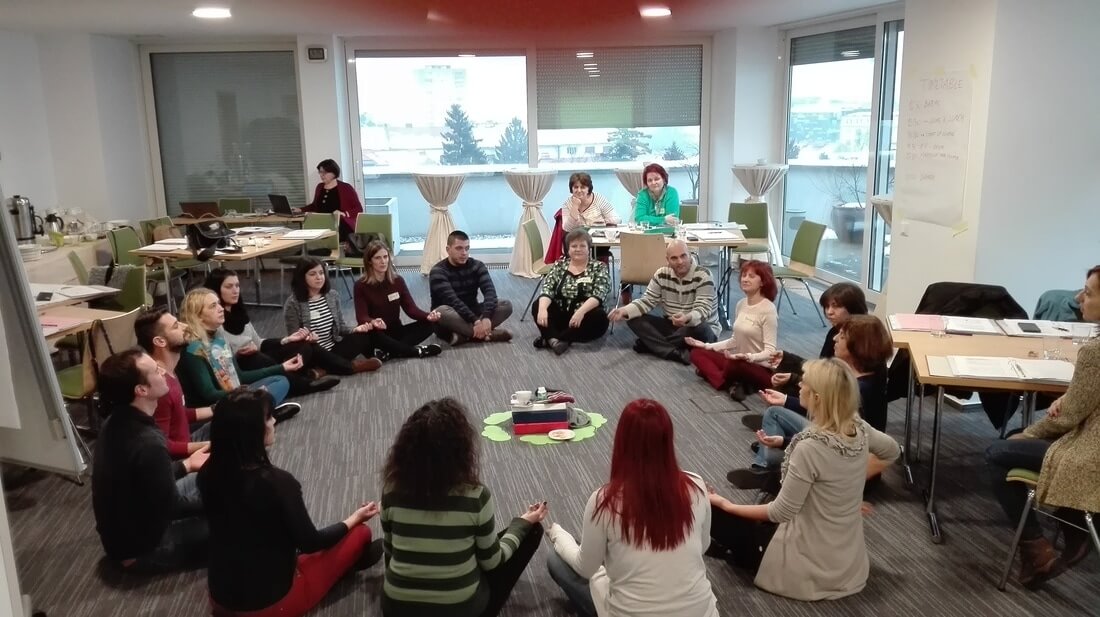
 RSS Feed
RSS Feed